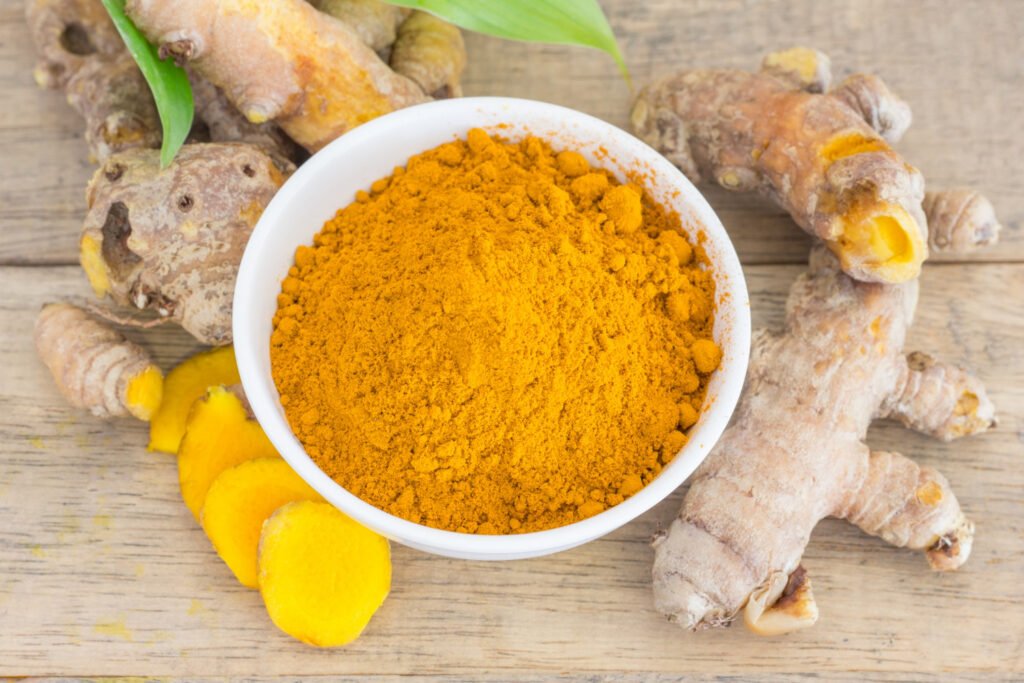
In this article
Turmeric, often called Indian saffron, is a vibrant spice that grows naturally in southeastern Asia. It has been used in traditional medicine and Indian cuisine for centuries. The primary compound in turmeric, curcumin, is known for its potent antioxidant and anti-inflammatory properties.
1. Improves Metabolic Syndrome
Metabolic syndrome, also known as insulin resistance syndrome, increases the risk of type 2 diabetes, stroke, and heart disease. This condition is marked by several risk factors, including high blood sugar, triglycerides, and blood pressure, as well as abdominal obesity and low HDL cholesterol. A 2016 study found that curcumin supplementation significantly reduced pro-inflammatory cytokines in individuals with metabolic syndrome. However, larger studies are needed to confirm these findings.
2. Alleviates Depression and Anxiety Symptoms
Depression is a serious mental health condition characterized by persistent sadness, low energy, and a lack of interest in daily activities. A 2020 review of nine studies revealed that turmeric supplementation led to significant improvements in depression and anxiety symptoms. Despite these promising results, further research with larger sample sizes is required.
3. Reduces Inflammation
Inflammation is a natural response by the immune system to protect and heal the body. However, chronic inflammation can lead to various health issues, including pain, fatigue, and weight gain. A 2015 review of seven clinical trials indicated that turmeric supplements could reduce markers of oxidative stress and increase antioxidant levels after more than six weeks of use. These results, though promising, are based on small studies, and more extensive research is necessary.
4. Enhances Kidney Health in Diabetics
Kidney disease, or renal disease, affects about one-third of people with diabetes. Excessive blood sugar can damage kidney blood vessels over time. Research suggests that turmeric supplementation may improve kidney function by reducing albumin levels in the urine, a marker of kidney damage.
5. Inhibits Cancer Cell Growth
Cancer is a leading cause of death worldwide, characterized by the abnormal growth and spread of cells. While most studies on turmeric and cancer have been conducted on animals or in vitro, some evidence suggests that curcumin nanoparticles may slow cancer cell growth and reduce tumor size. However, more human studies are needed to establish these benefits conclusively.
How to Use Turmeric
Turmeric is widely used in cooking, especially in Indian curries, Japanese teas, and as a supplement in various forms. To enhance the body’s absorption of curcumin, it should be consumed with black pepper and a source of fat, such as avocado or cheese.
Dosage and Safety
The FDA recognizes curcuminoids as generally safe. Turmeric supplements containing 4,000–8,000 milligrams per day are considered safe. However, it’s essential to consult with a healthcare provider before starting any new supplement regimen.
Potential Side Effects and Interactions
Turmeric is generally safe when consumed in foods or applied to the skin. However, high doses may cause gastrointestinal discomfort, headaches, nausea, or skin rash. Turmeric may also interact with certain medications, including those for cancer, heart disease, depression, diabetes, and allergies. Always consult with a healthcare provider before starting turmeric supplements.
Finding Quality Turmeric Supplements
Turmeric supplements are available in most grocery stores and pharmacies. Since the FDA does not regulate supplements as strictly as medications, it’s crucial to choose products that have been third-party tested for purity and accuracy.
Summary
Turmeric and its active compound, curcumin, offer numerous potential health benefits, including improving metabolic syndrome, alleviating depression and anxiety, reducing inflammation, enhancing kidney health, and inhibiting cancer cell growth. However, further research, particularly large-scale human studies, is needed to confirm these benefits. Always consult a healthcare provider before starting any new supplement to ensure it is safe and appropriate for your health needs.
A Quick Review
Turmeric, known for its vibrant color and medicinal properties, contains curcumin, a powerful antioxidant with anti-inflammatory effects. It may help improve metabolic syndrome, alleviate depression, reduce inflammation, enhance kidney health, and inhibit cancer cell growth. Consult a healthcare provider before use
FAQS
What is turmeric used for?
Turmeric is used for its medicinal properties and in cooking. It’s known for its anti-inflammatory and antioxidant effects, which may help with conditions like metabolic syndrome, depression, and inflammation.
Can turmeric help with depression?
Yes, studies have shown that turmeric supplementation can improve symptoms of depression and anxiety. However, more research is needed to confirm these benefits.
Are there any side effects of taking turmeric?
High doses of turmeric may cause gastrointestinal discomfort, headaches, nausea, or skin rash. It may also interact with certain medications, so consulting a healthcare provider is recommended.












